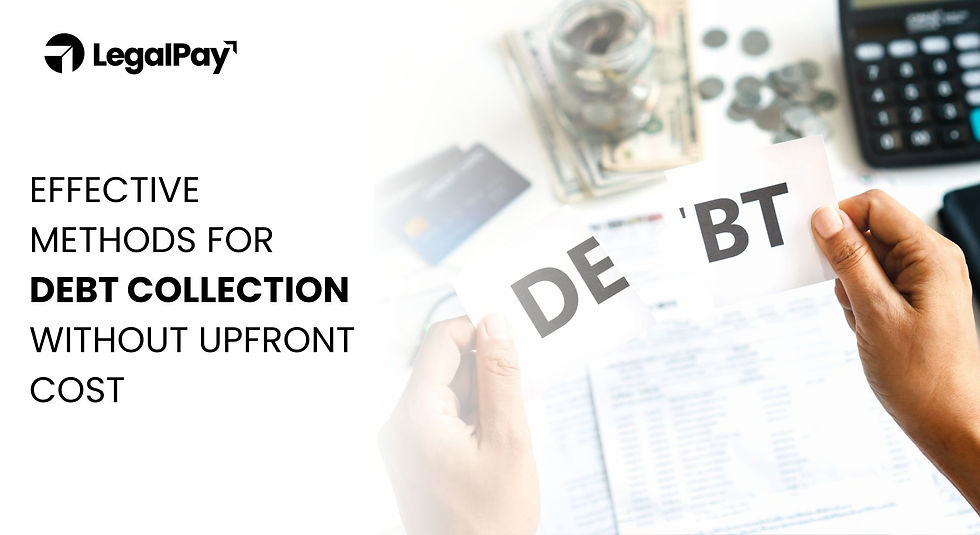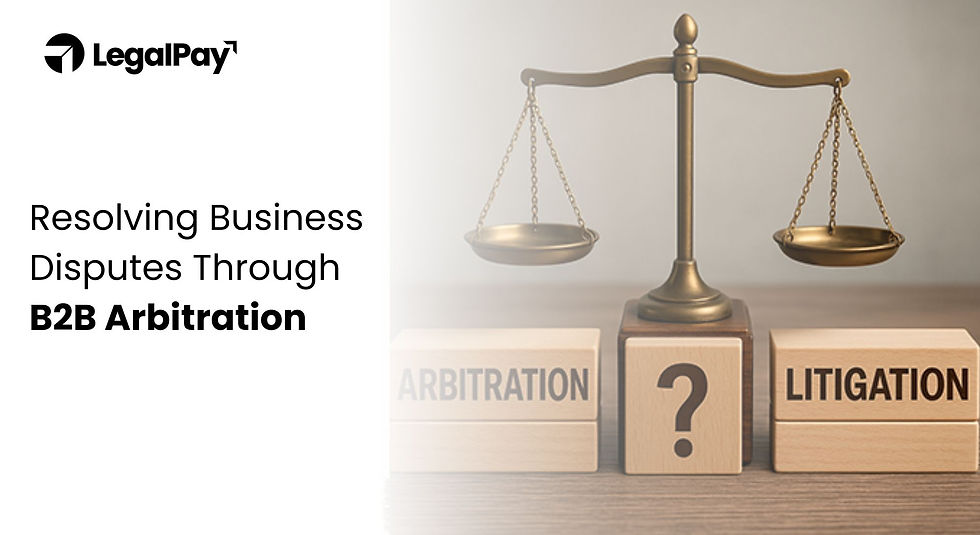How Can You Assert Your FDCPA Rights Against Debt Collectors?
- Navneet Singh

- Aug 7, 2024
- 5 min read

Dealing with debt collectors can be stressful, but knowing your rights under the Fair Debt Collection Practices Act (FDCPA) empowers you to assertively handle these situations. The FDCPA provides guidelines to ensure fair treatment and prevent abusive practices during debt collection. This blog explores how you can effectively assert your FDCPA rights when dealing with debt collectors, helping you navigate the process with confidence and protecting your financial well-being.
Understanding Your Rights Under the FDCPA
The FDCPA outlines specific rights for consumers when interacting with debt collectors. These rights include:
1. Right to Validation of Debt
You have the right to request validation of the debt within 30 days of initial contact. Debt validation requires the collector to provide proof that the debt is valid and details such as the original creditor's name and the amount owed. This ensures that you are responsible for paying a legitimate debt and prevents collectors from pursuing inaccurate or fraudulent claims.
2. Right to Cease Communication
You can request that debt collectors cease contacting you regarding the debt. Send a written cease and desist letter to the collector specifying that you do not wish to be contacted further. Once received, they can only contact you to confirm the cessation of communications or inform you of legal actions being taken.
3. Right to Dispute Debt
If you believe the debt is not yours or the amount is incorrect, you have the right to dispute the debt. Notify the collector in writing within 30 days of receiving the validation notice. The collector must then cease collection efforts until they verify the debt.
4. Right to Fair Treatment
The FDCPA prohibits debt collectors from engaging in abusive, deceptive, or unfair practices. This includes threats of violence, harassment, use of profane language, misrepresenting the debt's amount or legal status, and contacting third parties (except to obtain your contact information).
Steps to Assert Your FDCPA Rights Effectively
Document All Communications
Keep detailed records of all communications with debt collectors, including letters, emails, and phone calls. Note the dates, times, and content of each interaction. Documentation serves as crucial evidence if you need to dispute the debt or file a complaint against unlawful collection practices.
Send Written Correspondence
Communicate with debt collectors primarily in writing to maintain a clear record of your interactions and agreements. Use certified mail with the return receipt requested to ensure that your correspondence is documented and received by the collector.
Know When and How to Take Legal Action
If debt collectors violate your FDCPA rights, you can take legal action against them. Consult with a consumer rights attorney who specializes in debt collection practices to understand your legal options and potential remedies. Legal action may include filing a lawsuit for damages or seeking an injunction to stop unlawful collection activities.
Conclusion
Asserting your FDCPA rights empowers you to protect yourself from unfair debt collection practices and ensures that debt collectors adhere to legal guidelines. By understanding your rights, documenting interactions, and seeking legal advice when needed, you can effectively navigate interactions with debt collectors and maintain control over your financial situation. Remember, staying informed and proactive is key to asserting your rights under the FDCPA.
At LegalPay, we recognize the complexities of debt collection laws and are committed to protecting your rights. Our Debt Defense Plan offers expert legal assistance to ensure fair treatment and help you navigate through challenging financial situations. Whether you're dealing with aggressive debt collectors or seeking validation of your rights under the FDCPA, our team is here to support you. Contact us today to learn more about how we can assist you with our tailored Debt Defense Plan.
Frequently Asked Questions (FAQs)
Can debt collectors contact me at any time?
Debt collectors are generally restricted from contacting you at inconvenient times, such as before 8 a.m. or after 7 p.m. unless you agree to it or these times are deemed reasonable based on your preferences. You have the right to specify times that are more convenient for communication, and debt collectors must respect these preferences. If you do not provide specific instructions, they should only contact you between 8 a.m. and 7 p.m. in your time zone.
What should I do if a debt collector threatens legal action?
If a debt collector threatens legal action, it's essential to remain calm and request that the threat be provided in writing. According to the FDCPA, debt collectors must send a written notice within five days of their initial communication, outlining the amount owed, the creditor's name, and your rights to dispute the debt. Verify the debt by reviewing the details provided in the written notice and comparing them with your records. Consult with a consumer rights attorney to understand your legal options and how to respond appropriately. Remember, threats of legal action must be followed through with actual legal proceedings to be valid.
How can I report violations of the FDCPA?
If you believe a debt collector has violated the FDCPA, you can report the violations to several regulatory bodies. The Consumer Financial Protection Bureau (CFPB), your state's attorney general's office, and the Federal Trade Commission (FTC) all accept complaints related to debt collection practices. When filing a complaint, provide detailed information and documentation of the violations, including copies of letters, emails, or recordings of phone calls that demonstrate the collector's misconduct. These agencies investigate complaints and take appropriate action against collectors found to be violating consumer protection laws.
Do I have to pay a debt collector if I dispute the debt?
If you dispute the validity of a debt within 30 days of receiving the debt validation notice from the collector, they must suspend collection activities until they verify the debt. Debt validation requires the collector to provide evidence that the debt exists, such as the original creditor's name and the amount owed. Until the debt is validated, you are not legally obligated to pay it. If the collector fails to validate the debt within the timeframe, they cannot continue their collection efforts and must cease communication regarding that debt.
Can debt collectors discuss my debt with others?
Debt collectors are prohibited from discussing your debt with anyone other than you, your spouse, your attorney, or co-debtors if applicable. They can only contact third parties to obtain your contact information, and they are not allowed to disclose that you owe a debt. This protection ensures your privacy and prevents the embarrassment or harassment that could result from unauthorized disclosures. If a debt collector violates this provision by disclosing your debt to unauthorized parties, it constitutes a violation of the FDCPA, and you have grounds for legal action.




Comments